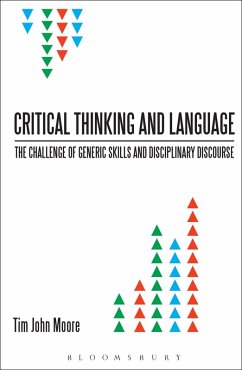This book clarifies the idea of critical thinking by investigating the 'critical' practices of academics across a range of disciplines. Drawing on key theorists - Wittgenstein, Geertz, Williams, Halliday - and using a 'textographic' approach, the book explores how the concept of critical thinking is understood by academics and also how it is constructed discursively in the texts and practices they employ in their teaching.
Critical thinking is one of the most widely discussed concepts in debates on university learning. For many, the idea of teaching students to be critical thinkers characterizes more than anything else the overriding purpose of 'higher education'. But whilst there is general agreement about its importance as an educational ideal, there is surprisingly little agreement about what the concept means exactly. Also at issue is how and what students need to be taught in order to be properly critical in their field. This searching monograph seeks answers to these important questions.
Critical thinking is one of the most widely discussed concepts in debates on university learning. For many, the idea of teaching students to be critical thinkers characterizes more than anything else the overriding purpose of 'higher education'. But whilst there is general agreement about its importance as an educational ideal, there is surprisingly little agreement about what the concept means exactly. Also at issue is how and what students need to be taught in order to be properly critical in their field. This searching monograph seeks answers to these important questions.


